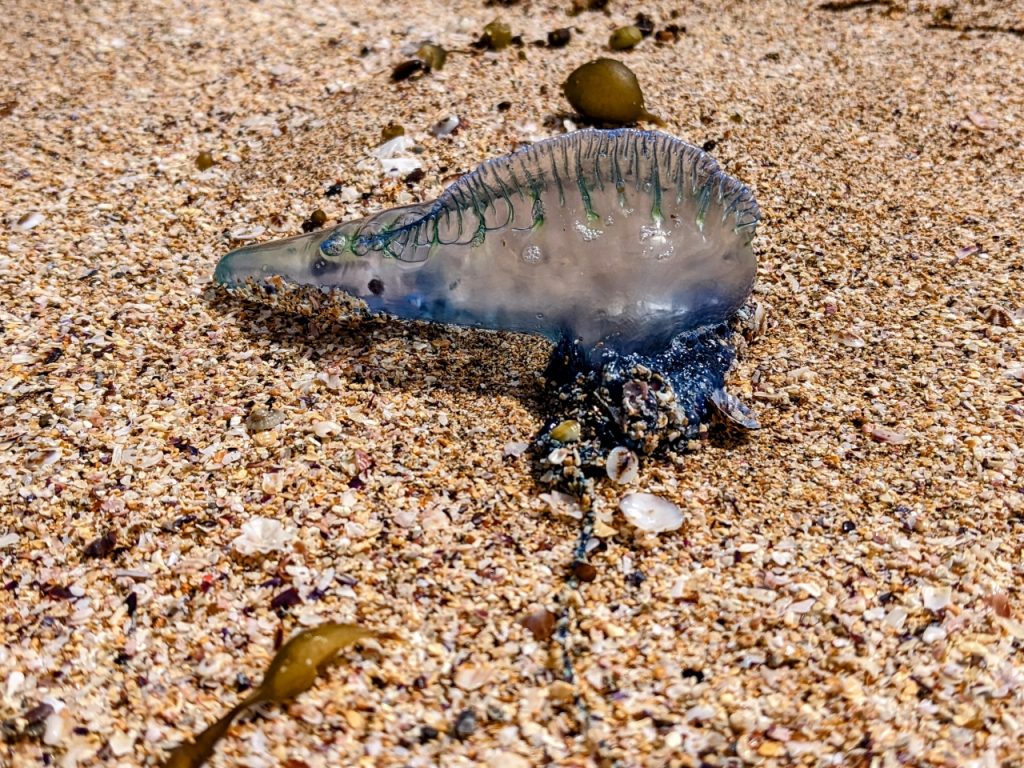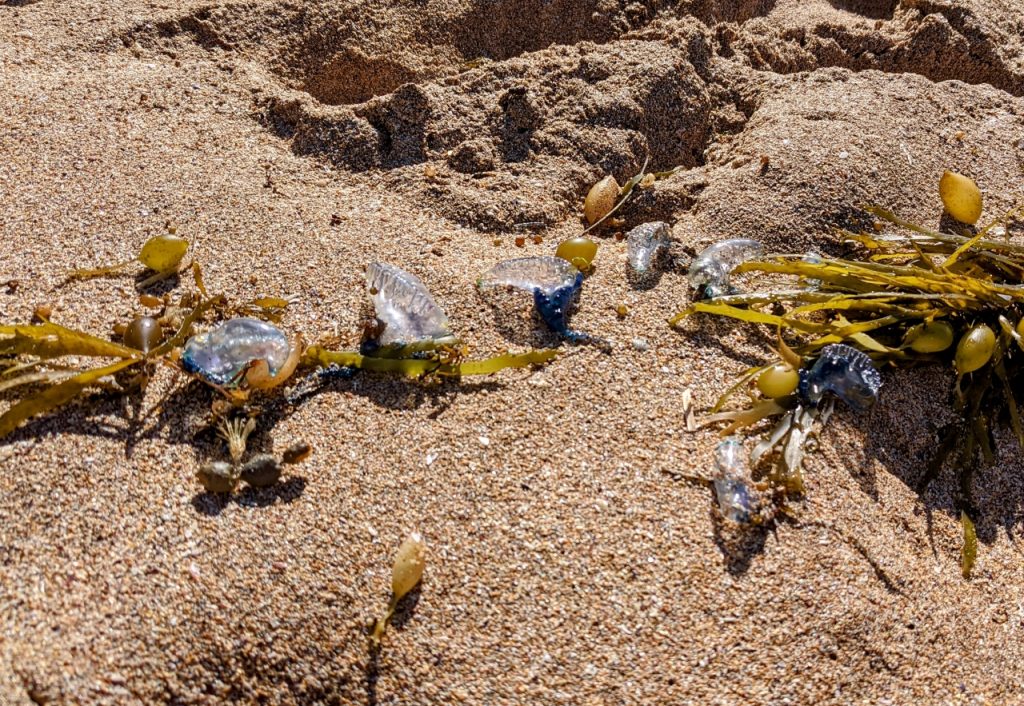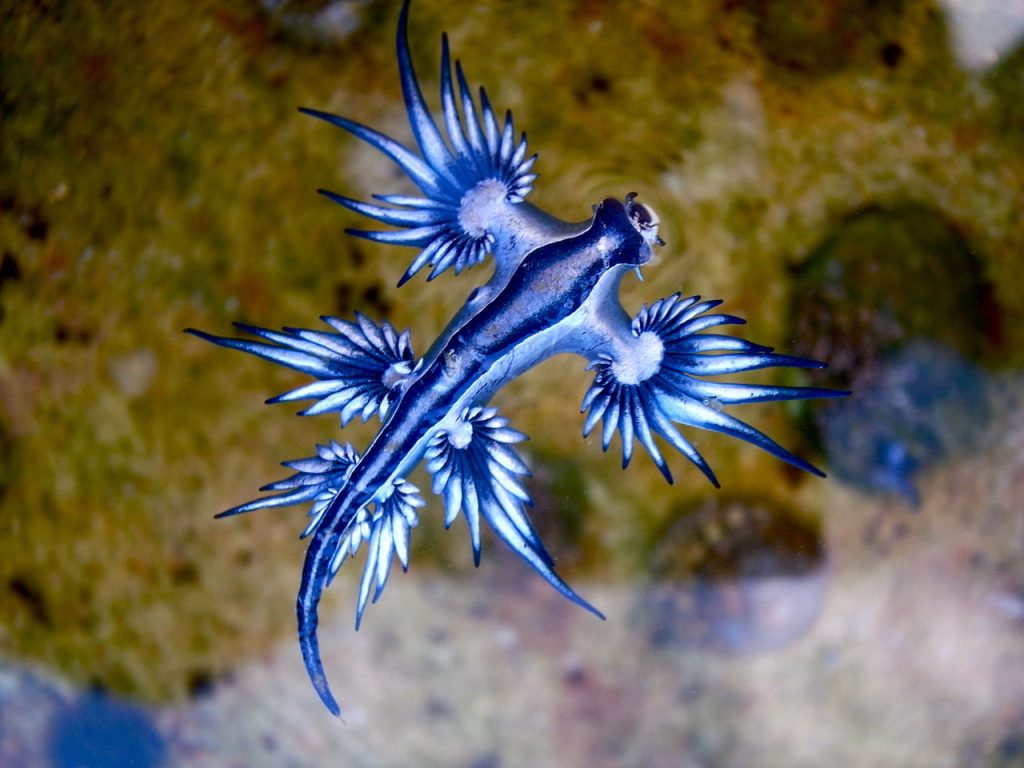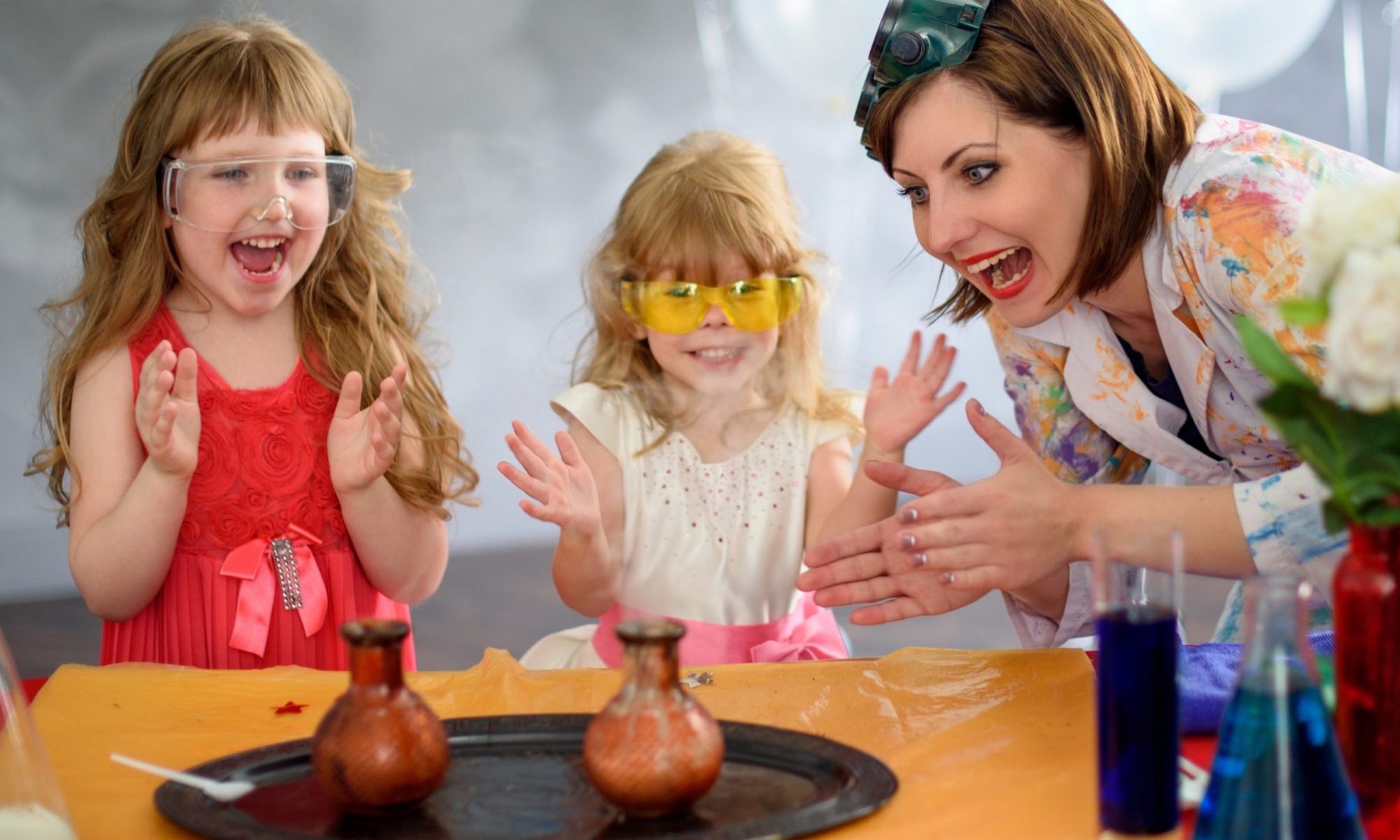When the north easterly winds arrive on the east coast of Australia, so do the Bluebottles. They are a common but unwelcome visitor to our beaches in summer. But what do you really know about these fascinating animals!

Bluebottles are not actually jellyfish but a colony of organisms called zooiods. They are composed of four separate colonies of polyps and medusoids including dactylozooids, pneumatophore, gastrozooids, and gonozoids.
The dactylozooids form the tentacles and detect and capture food. The food is transferred to the gastrozooids for digestion. The gonozooids are adjacent to the gastrozooids and constitute the reproductive structures of the colony. The pneumatophore is a gas-filled polyp that keeps it afloat and supports the rest of the colony.
Fun Fact: the collective noun for a group of Bluebottles is an ‘Armarda’
Bluebottles can sail either to the right or left depending on which way a crest on the float is angled. This means that the wind will push parts of the armarda in different directions to avoid the entire group from being washed ashore.

However, when the wind is right they are often stranded in large numbers along the east coast of Australia. They can cause painful stings when encountered in the water or on the beach.
What should you do if you get stung by a Bluebottle?
When the tentacles of the Bluebottle touches your skin they release nematocysts (stinging cells) like tiny harpoons, piercing your skin and injecting venom. The venom comprises of a mixture of phenols and protein which causes pain.
The best way to avoid a Bluebottle sting is to avoid going in the water when there are Bluebottles washed up on the shore or when lifeguards have put up warning signs. If you are unlucky and do get stung follow these simple rules.
- Do not rub the stung area
- Wash off the remaining stinging cells with saltwater.
- Apply hot water to the sting to reduce the discomfort
- Heat also breaks down the proteins in the venom
- Find a place to rest
Remember: people can have a different reaction to stings, if symptoms persist seek medical assistance.

Blue Sea Dragon Glaucus atlanticus They spend their life floating upside down in the water. They feed almost exclusively on Bluebottles and can store their stinging cells.
Image @ Sylke Rohrlach
Find more amimals that you might see washed up on the shore

